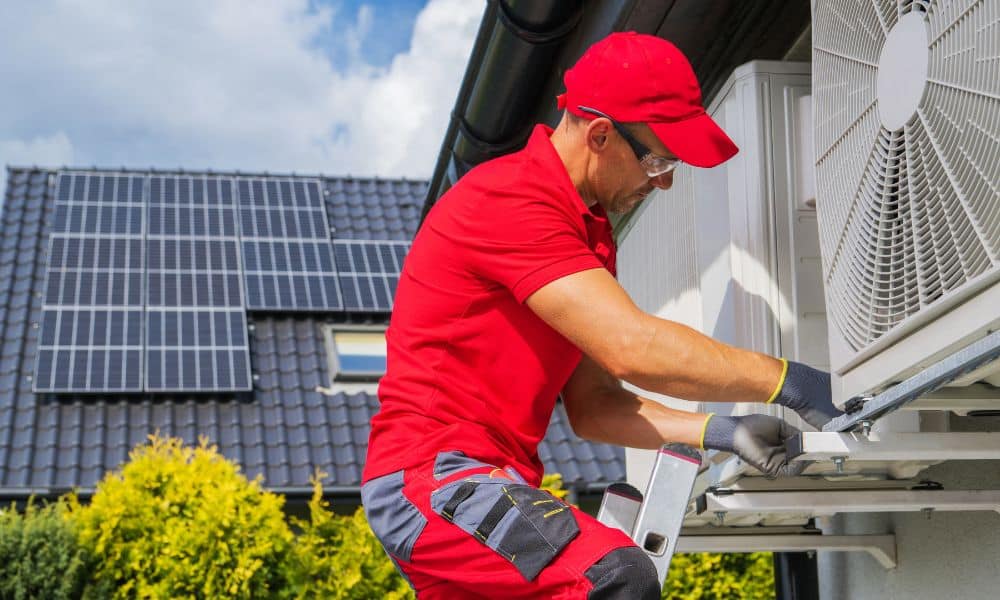What if you could improve your general peace of mind while saving money, breathing cleaner air, enjoying more comfort and safety in your house, and helping the environment for a very modest investment?
Just a summary of the advantages of regular HVAC maintenance. Let’s examine in more detail why HVAC system maintenance constitutes such a smart and beneficial investment.
Reduce Costs
Here are several ways that preventative maintenance boosts your revenue.
- Avoid expensive breakdowns
- lower energy costs
- extend the system’s lifespan
- Stay covered by a warranty
According to reports, regular commercial HVAC service may cut the likelihood of expensive failures by much as 95%. You probably wouldn’t let your automobile go 30,000 miles without an oil change; doing so would be a recipe for disaster. Your home’s air conditioning and heating system are comparable in this way.
Boost the Quality of Your Air

According to the EPA, indoor concentrations of airborne contaminants may be 2–5 times greater than outside levels and, in some instances, over 100 times higher. This is especially important when you or any relatives have respiratory conditions like asthma.
Even if we don’t realize it daily, many things that we’d rather not breathe share our houses with us. These typical indoor allergens include pet dander, dust, smoking cigarettes, pollen, mold, and everyday home dust, which may cause various respiratory problems.
If you’re worried about mold because of a musty smell, it may be good to think about having the ventilation duct cleaned by a professional. Preventive maintenance, in general, aids in making sure that the warm and cold air circulating through your ducts is as pure and as well as possible.
Upgrading Your Comfort

Your HVAC system is what keeps you comfy all year long. Your system produces and distributes warm or cold air more consistently and evenly with regular maintenance. Additionally, it lessens the likelihood that your vents will be blasting with icy air when you return to work one winter day.
However, it may also be simple to take upkeep for granted or to accept that a certain room is too warm in the summer or too cold in the winter. Cleaning your ducting and taking other preventative measures will help make sure that your house warms & cools as uniformly and effectively as feasible.
Additionally, routine maintenance will reduce the likelihood that HVAC odors or sounds can negatively impact your life quality.
Making Your House Safer

The horror tales have been told to you. Somebody you know went on vacation and returned to a badly damaged, frozen home. A snowball effect of frozen or broken pipes, water damage, and more may occur if you’re away from your home and your heater breaks down in the middle of a cold spell or one of the polar vortex shedding we’ve been reading about recently. In this case, the repair costs may be too high.
Preventive HVAC upkeep also protects you and your family from the danger of carbon monoxide, a colorless, odorless gas with potentially fatal consequences. The Centers for Disease Control warns that even little amounts of carbon monoxide exposure may harm one’s health.
A damaged or fractured heat exchanger is the most frequent reason for carbon monoxide leakage. Therefore, a carbon monoxide test is often performed as part of an HVAC maintenance inspection to identify possible risks. You may learn more about the advantages of implementing a detector for carbon monoxide from an HVAC expert.
Improve the Environment

If you’re worried about your carbon footprint, remember that a well-maintained HVAC system uses much less fuel, which is excellent for the environment.
Since the EPA has already been striving to phase out compounds that are harmful to the environment. Such homeowners will also like to be mindful of the kind of refrigerant utilized in their system. HVAC professionals can assist you in understanding the kind of refrigerant you’re using, its effects on the environment, and your alternatives. In addition, HVAC technicians handling restricted coolant are required to hold EPA Section 608 Certification.
Your HVAC professional may also inform you of the advantages of a programmable thermostat. And moving from oil to natural gas as steps you can take to lessen the environmental effect of your system.
Conclusion
In this article, you may have learned spending money on a preventative maintenance program provides peace of mind that. If anything goes wrong, you’ve already made efforts to make it as easy as possible.

